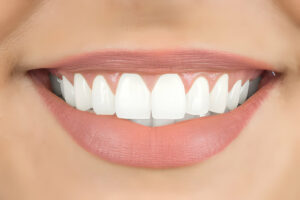Are you tired of dealing with red, itchy skin that won’t seem to clear up no matter what you try? Dermatitis can be a frustrating condition that affects many people, but understanding the root causes and effective treatment options can help demystify this common skin issue. In this ultimate guide to clear skin, we will explore the different types of dermatitis, symptoms to watch out for, and practical tips for managing and preventing flare-ups.
From eczema to contact dermatitis, various forms of dermatitis can wreak havoc on your skin. By uncovering the triggers specific to your type of dermatitis, you can take proactive steps toward achieving healthier, clearer skin. This guide will provide valuable insights into how diet, lifestyle factors, and skin care products all play a role in managing dermatitis effectively. Say goodbye to constant itching and inflammation. It’s time to take control of your skin health once and for all.
Table of Contents
ToggleUnderstanding The Different Types Of Dermatitis And Their Causes
Did you know that approximately 31.6 million Americans are affected by dermatitis each year? Understanding the different types of dermatitis and their causes is crucial in managing this common skin condition. There are several types of dermatitis, including atopic dermatitis, contact dermatitis, seborrheic dermatitis, and nummular dermatitis. Each type has its triggers and factors contributing to flare-ups. Atopic dermatitis, for example, is often linked to genetics and environmental factors. In contrast, contact dermatitis is caused by contact with irritants or allergens. By understanding the specific characteristics and causes of each type of dermatitis, individuals can better identify potential triggers and take steps towards clear skin.

Recognizing the differences between the various types of dermatitis allows for a more targeted approach to managing symptoms and preventing flare-ups. Identifying common triggers, such as certain skincare products, fabrics, foods, or environmental factors, can help individuals avoid potential irritants and maintain healthy skin. By gaining insight into the underlying causes of dermatitis, individuals can make informed decisions about their skincare routine and lifestyle choices. Transitioning into identifying common triggers and irritants for dermatitis flare-ups will further empower individuals to take control of their skin health.
Identifying Common Triggers And Irritants For Dermatitis Flare-ups
Identifying common triggers and irritants for dermatitis flare-ups is essential in managing this skin condition effectively. By recognizing the factors that can exacerbate dermatitis symptoms, individuals can take proactive steps to minimize their exposure to these triggers. Common irritants such as harsh chemicals in skincare products, allergens like pollen or pet dander, and stress can all contribute to dermatitis flare-ups. It’s essential to keep track of when flare-ups occur and pinpoint potential triggers so that you can make informed decisions about your skincare routine and lifestyle choices.
Taking control of your dermatitis by understanding what triggers flare-ups is crucial to achieving clear skin. By identifying common irritants and triggers, you can actively work towards minimizing their impact on your skin health. The following section will explore an overview of effective treatment options, from over-the-counter remedies to prescription medications that can help manage dermatitis symptoms and prevent future flare-ups.
Overview Of Effective Treatment Options From Over-the-counter Remedies To Prescription Medications
Understanding the various treatment options available is crucial when managing dermatitis. From over-the-counter remedies to prescription medications, there are practical solutions that can help alleviate symptoms and prevent flare-ups. Over-the-counter products such as moisturizers with ceramides or colloidal oatmeal can relieve mild dermatitis cases. For more severe cases, prescription medications like corticosteroids or immunomodulators may be necessary to control inflammation and itching. It’s essential to consult with a healthcare professional to determine the best course of action for your specific condition.
As you explore the different dermatitis treatment options, finding what works best for you is vital to achieving clear skin. Whether through topical treatments, oral medications, or lifestyle changes, there are ways to manage symptoms and improve your overall quality of life. Next, we’ll explore tips for managing dermatitis symptoms and preventing future outbreaks to help you journey to healthier skin.
Tips For Managing Dermatitis Symptoms And Preventing Future Outbreaks
Managing symptoms and preventing future outbreaks are vital to achieving clear skin when dealing with dermatitis. Identifying triggers that may exacerbate your condition, such as certain foods or environmental factors, is essential. Once you’ve pinpointed these triggers, please take steps to avoid them whenever possible. Additionally, keeping your skin moisturized and using gentle cleansers can help soothe irritation and reduce the likelihood of flare-ups. Remember to always consult with a healthcare professional before trying any new skincare products or treatments.
As you work on managing your dermatitis symptoms and preventing future outbreaks, incorporating lifestyle changes and establishing a consistent skincare routine is essential for maintaining clear, healthy skin. By making minor adjustments like eating a balanced diet rich in vitamins and nutrients, staying hydrated, getting enough sleep, and reducing stress levels, you can improve the overall health of your skin from within. Pair these lifestyle changes with a simple yet effective daily skincare routine tailored to your specific needs for optimal results.
Lifestyle Changes And Skincare Routines For Maintaining Clear, Healthy Skin
Incorporating lifestyle changes and establishing a proper skincare routine is essential when maintaining clear and healthy skin. One of the first steps in achieving this is to follow a balanced diet rich in nutrients that support skin health. By including foods high in antioxidants, such as fruits and vegetables, you can help reduce inflammation and promote overall skin wellness. Additionally, staying hydrated by drinking plenty of water throughout the day can keep your skin looking its best.
In addition to dietary improvements, establishing a consistent skincare routine tailored to your needs is crucial for maintaining clear skin. This involves using gentle cleansers suitable for sensitive skin types and avoiding harsh chemicals or fragrances that may irritate your dermatitis. Incorporating moisturizers with hydrating ingredients like hyaluronic acid can help nourish your skin and prevent dryness. It’s also essential to protect your skin from harmful UV rays by applying sunscreen daily, even on cloudy days.
By making these lifestyle changes and implementing a personalized skincare regimen, you can effectively manage dermatitis symptoms while preventing future outbreaks. Remember that consistency is critical when seeing results. Be patient and give yourself time to adjust to these new habits. With dedication and commitment, achieving precise and healthy skin is within reach for anyone with dermatitis.
Frequently Asked Questions
Can Stress And Anxiety Worsen Dermatitis Symptoms?
Imagine your skin as a delicate flower, easily affected by its environment. Picture stress and anxiety as dark storm clouds hover over this fragile bloom. These negative emotions can worsen dermatitis symptoms, such as how turbulent weather can damage a beautiful garden. The connection between mental health and skin conditions is often underestimated but plays a significant role in managing flare-ups.
When we experience stress or anxiety, our bodies release hormones that can trigger inflammation in the skin, leading to redness, itching, and discomfort. This physical response is essentially the body’s way of communicating its distress signals outwardly through our skin. In addition, stress weakens the immune system, making it harder for the body to defend against external irritants that may further exacerbate dermatitis symptoms.
Remember to pay attention to your mental well-being as you strive for clear skin free from dermatitis flare-ups. By practicing mindfulness techniques such as deep breathing exercises, meditation, or yoga, you can help calm those storm clouds of stress and anxiety that threaten to disrupt your skin’s equilibrium. Taking care of your mind and body will improve your overall well-being and contribute to healthier skin in the long run.
Are There Any Natural Remedies Or Alternative Therapies That Can Help Alleviate Dermatitis Symptoms?
Several options are worth considering if you’re looking for natural remedies or alternative therapies to help alleviate dermatitis symptoms. Many people find relief from applying aloe vera gel or coconut oil topically to soothe inflamed skin and reduce itching. Oatmeal baths can also be beneficial in calming irritated skin and providing relief from discomfort. Additionally, some individuals have successfully used essential oils such as lavender or tea tree oil to reduce inflammation and promote healing.
While natural remedies can relieve dermatitis symptoms, it’s essential to consult with a healthcare professional before trying any new treatments, especially if you have sensitive skin or allergies. They can offer guidance on which options may work best for your specific condition and help ensure you take the necessary precautions to avoid worsening your symptoms. Remember, what works for one person may not necessarily work for another, so it’s essential to approach alternative therapies with caution and care.
TIP: When incorporating natural remedies for dermatitis into your skincare routine, patch-test the product on a small skin area to check for adverse reactions before applying it more widely. This simple step can help prevent potential irritation and allow you to gauge how effective the remedy is for your individual needs.
How Can Diet And Nutrition Impact Dermatitis Flare-ups?
They say, “You are what you eat,” and when it comes to dermatitis flare-ups, this couldn’t be more accurate. Understanding how diet and nutrition impact your skin condition is crucial in managing and preventing outbreaks. Certain foods can trigger inflammation in the body, leading to irritation and redness on the skin. For example, dairy products, gluten, and sugar are common culprits that can exacerbate dermatitis symptoms. On the other hand, incorporating anti-inflammatory foods like fruits, vegetables, fatty fish, and nuts into your diet can help reduce inflammation and promote clear skin.
Moreover, staying hydrated plays a significant role in maintaining healthy skin. Drinking enough water throughout the day helps flush out toxins from your body and keeps your skin hydrated from within. Limiting caffeine and alcohol intake can also benefit those with dermatitis, as these substances can dehydrate the skin and worsen symptoms. Additionally, keeping a diary can help identify triggers causing flare-ups by paying attention to food sensitivities or allergies.
Incorporating a balanced diet rich in nutrients is essential for managing dermatitis flare-ups effectively. Opt for whole foods over processed ones, choose lean proteins like chicken or tofu, and include plenty of colorful fruits and vegetables in your meals. Remember that everyone’s body reacts differently to certain foods, so it’s essential to listen to your body cues and adjust your diet accordingly to maintain clear skin without relying solely on medication. By making mindful choices about what you eat daily, you can take control of your dermatitis journey towards clearer and healthier skin.
Conclusion
In conclusion, understanding the various types of dermatitis and their causes is essential in managing flare-ups and maintaining clear skin. By identifying common triggers and irritants, individuals can proactively prevent future outbreaks. From over-the-counter remedies to prescription medications, various treatment options are available to help alleviate symptoms.
Remember, knowledge is power when it comes to achieving clear skin. You can demystify dermatitis and achieve your desired healthy complexion by implementing lifestyle changes, skincare routines, and effective treatments. So don’t let dermatitis get under your skin—take control of your skincare routine today!
















